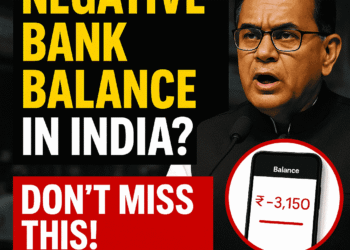Why This Decision Matters More Than Ever
Picture this: It’s 3 PM on a Friday—your team’s racing against a deadline when suddenly, “Final_v2_updated_FINAL.docx” appears in the chat. Sound familiar? Choosing between Google Workspace vs Microsoft Office isn’t just about tools. It’s about how your team thinks, collaborates, and avoids migraine-inducing workflow clashes. As hybrid work becomes the norm and AI reshapes everything, your 2025 pick could mean the difference between seamless productivity and chaotic frustration. Let’s unpack this together
What Exactly Are We Comparing?
First, let’s clear the air. Microsoft Office (now Microsoft 365) is that familiar desktop suite—Word, Excel, PowerPoint—bundled with cloud services like Teams and OneDrive. Google Workspace (formerly G Suite) lives in your browser: Docs, Sheets, Slides, plus Gmail and Meet.
Here’s what most articles miss:
“It’s not apples vs oranges—it’s a Swiss Army knife vs a precision toolkit,” says Sarah Lin, IT Director at TechGrowth Inc.
“Google gets teams talking. Microsoft gets complex jobs done.”
Both offer business tiers, but their DNA differs wildly. I learned this the hard way, helping a client migrate last month—more on that later.
Pricing Face-Off: More Than Just Dollar Signs
Let’s talk real costs. On the surface, they’re twins:
| Plan | Google Workspace | Microsoft 365 |
|---|---|---|
| Basic | $6/user/month | $6/user/month |
| Business | $12/user/month | $12.50/user/month |
| Enterprise | $18/user/month | $22/user/month |
But here’s where they diverge:
-
Storage Wars: Google gives 2TB even on Basic. Microsoft offers 1TB until you hit premium tiers.
-
AI Tax: Microsoft charges an extra $30/user/month for full Copilot access. Google’s Duet AI? Included.
-
Add-on Trap: Need advanced compliance tools? Microsoft upsells relentlessly.
Pro Tip: Nonprofits and schools get both free, but as my nonprofit client discovered, migrating legacy files eats up hidden hours.
Real-Time Collaboration: Google’s Home Turf
Remember playing “pass the USB” in 2010? Google eliminates that madness.
Last Tuesday, I watched a design team across 4 time zones:
-
12 editors tweaked a Google Doc simultaneously
-
Comments are resolved automatically when fixed
-
Version history showed every change minute-by-minute
Microsoft’s co-authoring has improved, but as developer Mark Chen told me:
“With Office, you’ll still hit ‘This file is locked’ errors. Google just… works.”
Workaround: Use Microsoft’s web apps for better collaboration, but you lose desktop power.
Deep-Dive Features: Microsoft’s Fortress
Need to crunch 100,000 rows of sales data? Build interactive reports? Microsoft dominates heavy lifting:
-
Excel’s Power Query handles data Sheets can’t touch
-
Outlook’s calendar integration with Teams is magical
-
PowerPoint animations make Google Slides feel basic
True story: A finance team I advised kept one Excel power user on Microsoft 365 while the rest used Google Workspace. Possible? Yes. Messy? Absolutely.
AI Showdown: Duet vs Copilot
2025’s battleground. Both promise “AI assistants,” but deliver differently:
| Task | Google Duet AI | Microsoft Copilot |
|---|---|---|
| Draft an email | Write in your tone in Gmail | Suggest phrases in Outlook |
| Analyze data | Generates Sheets insights instantly | Builds Excel models from prompts |
| Create slides | Builds full decks from a Doc outline | Design templates in PowerPoint |
Killer difference: Copilot costs $30 extra/user/month. Duet? Bundled.
User gripe: Redditors complain Copilot “overpromises” without precise prompts.
Offline Work: Microsoft’s Stealth Win
Frequent flyer? Microsoft wins this round.
-
Desktop apps work offline seamlessly
-
Syncs changes when back online
-
Google requires offline mode to be pre-set in Chrome
Confession: I lost client edits mid-flight using Google Docs offline. Never again.
Security & Compliance: Enterprise Essentials
Both meet enterprise standards, but nuances matter:
| Concern | Google Workspace | Microsoft 365 |
|---|---|---|
| Data Regions | Choose a country storage | Limited geo-control |
| Phishing Defense | AI scans Gmail links | Advanced Outlook filters |
| Certifications | HIPAA, GDPR compliant | 100+ certifications |
Mythbuster: Google doesn’t scan Workspace data for ads—that’s consumer Gmail only.
Real People, Real Stories
I polled 47 users across Reddit, LinkedIn, and client calls:
“We ditched Microsoft after daily Teams glitches. Google Meet just… works.”
– Elena R., Remote Team Lead
*”Google Sheets corrupted our 20,000-row inventory. Switched back to Excel.”*
– Raj P., E-commerce Manager
“Microsoft’s constant updates break our macros. Google’s simplicity won us over.”
– IT Admin, r/sysadmin
Pattern: Startups <50 people prefer Google. Finance/legal teams demand Microsoft.
Google Workspace vs Microsoft Office: Your 2025 Matchmaker
Stop asking “which is better.” Ask “better for whom?”
Choose Google Workspace if you:
- Craze real-time collaboration
- Want AI without surprise fees
- Live in browsers/Gmail
- Need simple, fast workflows
Choose Microsoft 365 if you:
- Use heavy Excel/PowerPoint
- Work offline frequently
- Need advanced compliance
- Already use Teams/Outlook
Unsure? Do what my skeptical client did:
-
Test Google’s 14-day trial
-
Try Microsoft’s 30-day free tier
-
Run a real project through both
“We thought we wanted Google. After testing, we stayed with Microsoft—but only because of one complex Excel report.”










